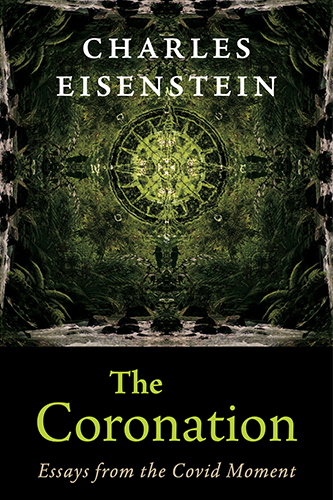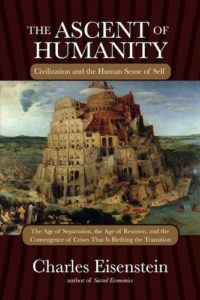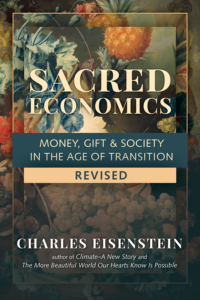The More Beautiful World Our Hearts Know Is Possible
Chapters
Chapter 4: Cynicism
When I was young, it seemed that life was so wonderful, a miracle, it was beautiful, magical
And all the birds in the trees, well they’d be singing so happily, joyfully, playfully, watching me
But then they sent me away to teach me how to be sensible, logical, responsible, practical
And they showed me a world where I could be so dependable, clinical, intellectual, cynical—Supertramp
I would like to speak to those of you who feel triggered by the principles of interbeing I laid out earlier, which I admit smack of New Age puffery. Actually, let me be brutally honest here: I only use the phrase “New Age puffery” as a way to implicitly assure you that I am no dupe of such a thing; that I am on the side of the hardheaded realists. See, here I am joining you in derision.
This is a common tactic. Liberals take special pleasure in criticizing more radical leftists; nuts-and-bolts UFOlogists are vehement in their derision of abduction claims; the kid who is bullied turns on someone still weaker. The unpopular kids in school take pains not to be tainted by association with the very unpopular kids. By doing this, though, we attempt to borrow legitimacy from the very system we hope to subvert, and indirectly enhance its legitimacy by associating our own with its. We commit the same error when we overrely on the academic or professional credentials of our allies to persuade those who are impressed by such things. If I appeal to Dr. Eben Alexander’s status as a professor of neurosurgery to get you to believe in extrasomatic near-death experiences, then implicitly I am affirming that you should trust that status generally, along with the edifice of academic science surrounding it. But generally, those of that status and of that edifice deny his arguments. Appeals to authority will only strengthen authority. What implicit message is encoded in “See, this professor, that Republican, this businessman, that mainstream pundit agree with me”? It is that these people carry the legitimate stamp of approval, and not those outsiders, hippies, the uncredentialed, the unpublished. Using this tactic, we might win the battle, but we will lose the war. Audre Lorde said it well: The master’s tools will never dismantle the master’s house.
Similar logic applies to utility-based arguments for environmentalism. Have you ever heard arguments that we must practice conservation because of the economic value of “ecosystem services”? Such arguments are problematic because they affirm the very assumption we need to question, that decisions in general should be made according to economic calculations. They also fail to persuade. Are you an environmentalist because you are moved by all the money we’ll save? Well, no one else will become an environmentalist for that reason either. We have to appeal to what moves us: the love of our beautiful planet.
Knowing all this, why was I still tempted to deploy the disparaging term “New Age puffery” to disclaim the very principles I have enumerated, in an effort to maintain my credibility? Like you, dear reader, I still inhabit two conflicting stories, an old and a new. Even as I tell a Story of Interbeing, part of me remains in the world of separation. I am not some enlightened being trying to guide you on a journey he has already completed. That too is an old model, partaking of a kind of spiritual hierarchy based on a linear conception of the evolution of consciousness. In the present transition, each of us is pioneering a unique part of the territory of Reunion. In keeping with that, I must offer you my doubt and conflict along with my insight. Those spiritual truths—and I feel squeamish about that phrase—trigger me too, nearly as much, I daresay, as they trigger the most splenetic defender of scientific orthodoxy. The only difference is that my derision is turned inward.
It is not only that I am adopting the vocabulary of the skeptic in order to defuse accusations of naiveté. What motivates my inner cynic? The principles above are frightening, because they foster a tender, vulnerable hopefulness that might easily be crushed, as it has been so many times before. People ask me at talks, “Back in the ’60s we were saying similar things about a dawning new age, but it didn’t happen. Instead, the course of violence and alienation proceeded apace, proceeded indeed to new extremes. How do we know the same won’t happen this time?” It sounds like a reasonable objection. I argue in this book that the 1960s are significantly different from today, but my argument can be rebutted, and counter-rebutted. Underneath it all something is hurting, and as long as that wound festers, no argument will be persuasive to the cynic.
Remember this when you encounter a harsh, cynical critic (whether inside yourself or outside). If you remember that the cynicism comes from a wound, you might be able to respond in a way that addresses that wound. I can’t tell you in advance exactly how to respond. That wisdom comes directly from hearing with compassionate ears and being present to the hurting. Perhaps there is some act of forgiveness or generosity that calls to you that might allow healing. When that happens, the intellectual beliefs, which are really just expressions of a state of being, often change spontaneously. Beliefs that were once appealing are no longer so.
The derision of the cynic comes from a wound of crushed idealism and betrayed hopes. We received it on a cultural level when the Age of Aquarius morphed into the age of Ronald Reagan, and on an individual level as well when our youthful idealism that knew a more beautiful world is possible, that believed in our own individual destiny to contribute something meaningful to the world, that would never sell out under any circumstances and would never become like our parents gave way to an adulthood of deferred dreams and lowered expectations. Anything that exposes this wound will trigger us to protect it. One such protection is cynicism, which rejects and derides as foolish, naive, or irrational all of the expressions of reunion.
The cynic mistakes his cynicism for realism. He wants us to discard the hopeful things that touch his wound, to settle for what is consistent with his lowered expectations. This, he says, is realistic. Ironically, it is in fact cynicism that is impractical. The naive person attempts what the cynic says is impossible, and sometimes succeeds.
If you are thinking, “All this stuff about oneness is a lot of garbage,” if you feel disgust or contempt, I ask you to look honestly at where the rejection is coming from. Could it be that there is a lonely, timid part of you that wants to believe? Are you afraid of that part? I know I am. If I allow it to grow, if I allow it to guide my life, if I trust all those statements of the new story I listed above, I open myself to the possibility of immense disappointment. It is an exquisitely vulnerable position to believe, to trust in purpose, in guidance, and that I will be okay. Better stay cynical. Better stay safe.
If you respond to this talk of oneness not with cynicism but rather a feeling of vindication, that doesn’t mean you do not bear the same wound as the cynic. Perhaps instead of exercising it like the cynic does, you are ignoring it. Could it be that whenever the doubt creeps in, you assuage its pain by picking up the latest book on angel healing, crop circles, or reincarnation? Are you committing spiritual bypass? One way to tell whether your belief in oneness and its associated paradigms conceals an unhealed wound is whether the derision of the skeptic provokes outrage or personal defensiveness. If so, then something beyond a mere opinion is being threatened. Skeptic and believer are not so different, as both are using belief to shelter a wound. So, whether you feel indignant at my mention of UFOs, or feel indignant toward the skeptic’s doctrinaire rejection of them, I encourage you to reflect on where this emotion comes from. We want to see what is hidden inside us, so that we won’t blindly replicate it again and again in what we create.
I cringe to think what a no-nonsense realist like James Howard Kunstler (someone I admire) would say if he read this book. No matter—my inner critic can do him one better. “You imagine that some magical ‘technologies of interbeing’ are going to save us?” it snorts. “This is just the kind of wishful thinking that keeps us complacent and paralyzed. You just can’t face up to the truth. There is no way out. The situation is hopeless. Barring some miracle, where everyone wakes up tomorrow and suddenly gets it, humanity is doomed. Prattling on about a ‘purpose’ or ‘intelligence’ in the universe, for which there is no scientific evidence, only makes matters worse.”
I have found, though, that it is the opposite of what my inner cynic says. The doom and gloom is what is paralyzing, and the naive hope is what inspires me to take action. Either one can be a self-fulfilling prophecy. What happens when millions or billions of people begin acting from the Story of Interbeing, in which no action is insignificant? The world changes.
Equally paralyzing is the belief that a nefarious evil cabal controls the world. Why try to create anything, when meaningful change will be crushed by an all-seeing diabolical power? I’ve dabbled in these theories, which bring me into a heavy, burdened state that feels like I’m suffocating in a pool of molasses. Yet I am told I am naive and impractical to deny it. If only I would open my eyes and see!
Nonetheless, these conspiracy theories do express a psychological truth. They give voice to a feeling of helplessness and rage, the primal indignation of being cast into a world ruled by institutions and ideologies that are inimical to human well-being. The “evil cabal” also represents a shadow aspect of ourselves, driven to dominate and control—an inevitable outgrowth of the separate self in an indifferent or hostile universe. The endless drive to prove conspiracy theories is a kind of protest. It says, “Please believe me. It isn’t supposed to be this way. Something awful has taken over the world.” That something is the Story of Separation and all that arises from it.
Does that mean the new story is a motivational subterfuge, a device to trick us into acting as if what we did mattered? The last resort of my inner cynic is to say, “Well, I suppose the Story of Interbeing might be useful as a way to deceive people into taking action, but it isn’t true.” I would be like the preacher exhorting people to pious acts while secretly being an unbeliever himself. Underneath this particular cynicism I find again pain, an anguished loneliness. It wants proof that the Story of Interbeing is true, proof that life has purpose, the universe is intelligent, and that I am more than my separate self. I wish I could rely on evidence to choose my belief. But I cannot. Which story is true, Separation or Interbeing? I will in this book offer evidence that fits the latter, but none of it will constitute proof. No evidence is ever enough. There is always an alternate explanation: coincidence, fraud, wishful thinking, etc. Absent conclusive evidence, you will have to decide on some other basis, such as “Which story is most aligned with who you truly are, and who you truly want to be?” “Which story gives you the most joy?” “From which story are you most effective as an agent of change?” To make such a choice on something other than evidence and reason is already a huge departure from the Story of Separation and its objective universe.
So, am I tricking you? Surely, if I offered the new story from a place of secret disbelief, I would be an ineffective storyteller. My duplicity would show in one form or another and mar the integrity of the narrative. That is not to say that I have fully stepped into the Story of Interbeing and the total faith and trust it implies. Far from it. Fortunately, my ability to tell the story doesn’t depend on my faith alone. I am surrounded by many, many other people who themselves, imperfectly as I do, hold the same story. Together we move deeper and deeper into it. Enlightenment is a group activity.
Endnotes
3. I am referring here to Alexander’s book, Proof of Heaven: A Neurosurgeon’s Journey into the Afterlife.
4. This is not to dismiss the idea of aligning economic incentives with ecological well-being. Green taxes and similar measures are important ways of bringing ecological values into our economic system. They have their limit, however; we must understand that no measure, no quantity, can encompass the infinite. When we attempt to reduce the infinitely precious to a number, monstrosities result. For example, if we value a rainforest’s ecosystem services at $50 million, that implies that if we can make $51 million by cutting it down, we should.






